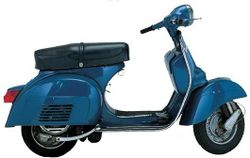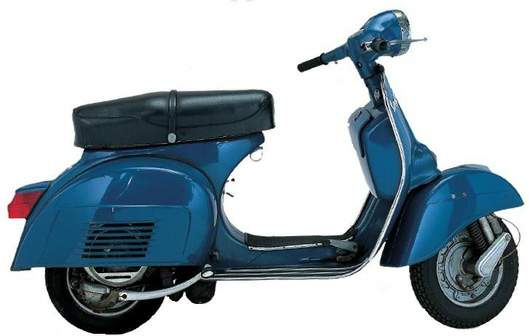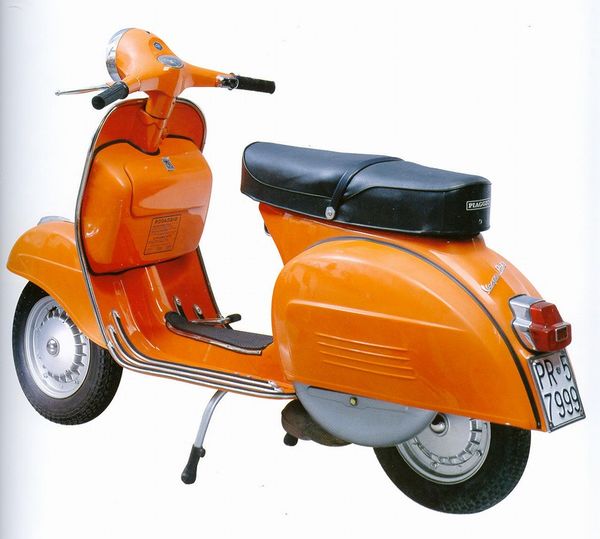Vespa 180 RALLY: history, specs, pictures
 |
|
| Vespa 180 RALLY | |
| Manufacturer | |
|---|---|
| Production | 1968 |
| Class | Scooter |
| Engine | Two stroke, single cylinder, air-cooled |
| Bore / Stroke | 63.5mm x 63.5mm |
| Compression ratio | 8.1 |
| Horsepower | 10.33 HP (7.7 KW) @ 5700RPM |
| Fuel System | Carburetor |
| Transmission | Gear box: 4-Speed, grip-shift, constant mesh Final Drive: DIrect drive |
| Suspension | Front: Helicoidal springs and hydraulic shock absorber Rear: Helicoidal springs and hydraulic shock absorber |
| Brakes | Front: Drum 125 mm Rear: Drum 127 mm |
| Front Tire | 3.5 x 10" |
| Rear Tire | 3.5 x 10" |
| Wheelbase | 48.39 inches (1229 mm) |
| Length | 69.69 inches (1770 mm) |
| Width | 26.42 inches (671 mm) |
| Weight | 109.0 kg (wet) |
| Manuals | Service Manual |
The Vespa 180 RALLY was a Four stroke, single cylinder, air-cooled scooter produced by Vespa in 1968. Claimed horsepower was 10.33 HP (7.7 KW) @ 5700 RPM.
Engine[edit | edit source]
A 63.5mm bore x 63.5mm stroke result in a displacement of just 180.1 cubic centimeters.
Drive[edit | edit source]
The bike has a 4-Speed, grip-shift, constant mesh transmission. Power was moderated via the Wet Multi-plate.
Chassis[edit | edit source]
It came with a 3.5 x 10" front tire and a 3.5 x 10" rear tire. Stopping was achieved via Drum 125 mm in the front and a Drum 127 mm in the rear. The front suspension was a Helicoidal springs and hydraulic shock absorber while the rear was equipped with a Helicoidal springs and hydraulic shock absorber. The wheelbase was 48.39 inches (1229 mm) long.
1968 - 1973 Vespa 180 RALLY[edit | edit source]
After the success of the Vespa Super Sport 180, Piaggio puts the new 180cc vehicle on the market with a completely new mechanics and frame, which derive from the Vespa Sprint of 1966, with some aesthetical changes to the handlebar, storage box and saddle. The Vespa Rally 180 is still one of the most functional and best looking vehicles. Its production began in 1968 and ended in 1973, with a total of 26,000 vehicles built.

